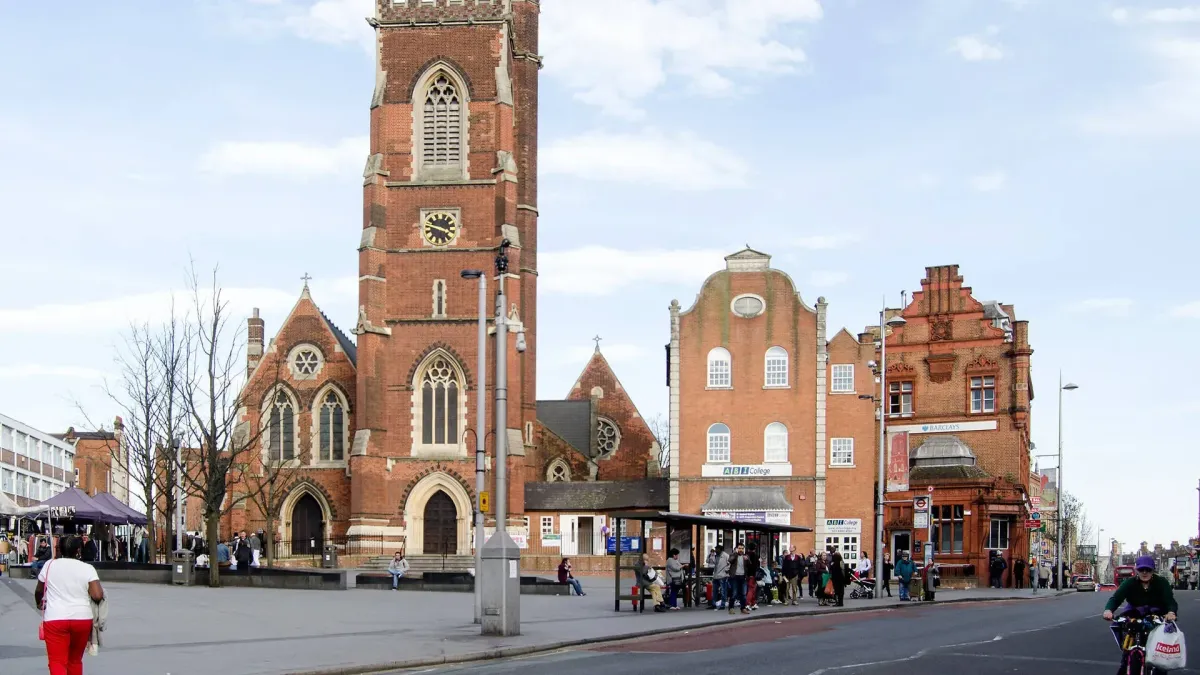
Services > Classical piano lessons for teenagers
Classical piano lessons for teenagers in Acton
The teenage years are a unique window—where self-awareness grows, time becomes scarce, and identity starts to crystallise. At Wong Cool Piano Lessons, piano becomes more than a skill—it becomes a framework for thinking clearly, expressing deeply, and taking ownership of one’s growth. Whether the goal is to pursue graded exams, audition for a programme, or simply reconnect with creativity, lessons are tailored to fit the individual—not the other way around.
I work closely with teens to help them find rhythm and discipline amid their busy academic and social lives. My teaching balances high expectations with calm structure. We move beyond “playing notes” to develop interpretation, focus, and autonomy—giving teens a rare space to challenge themselves without judgment and to discover the power of sustained effort and subtle artistry.
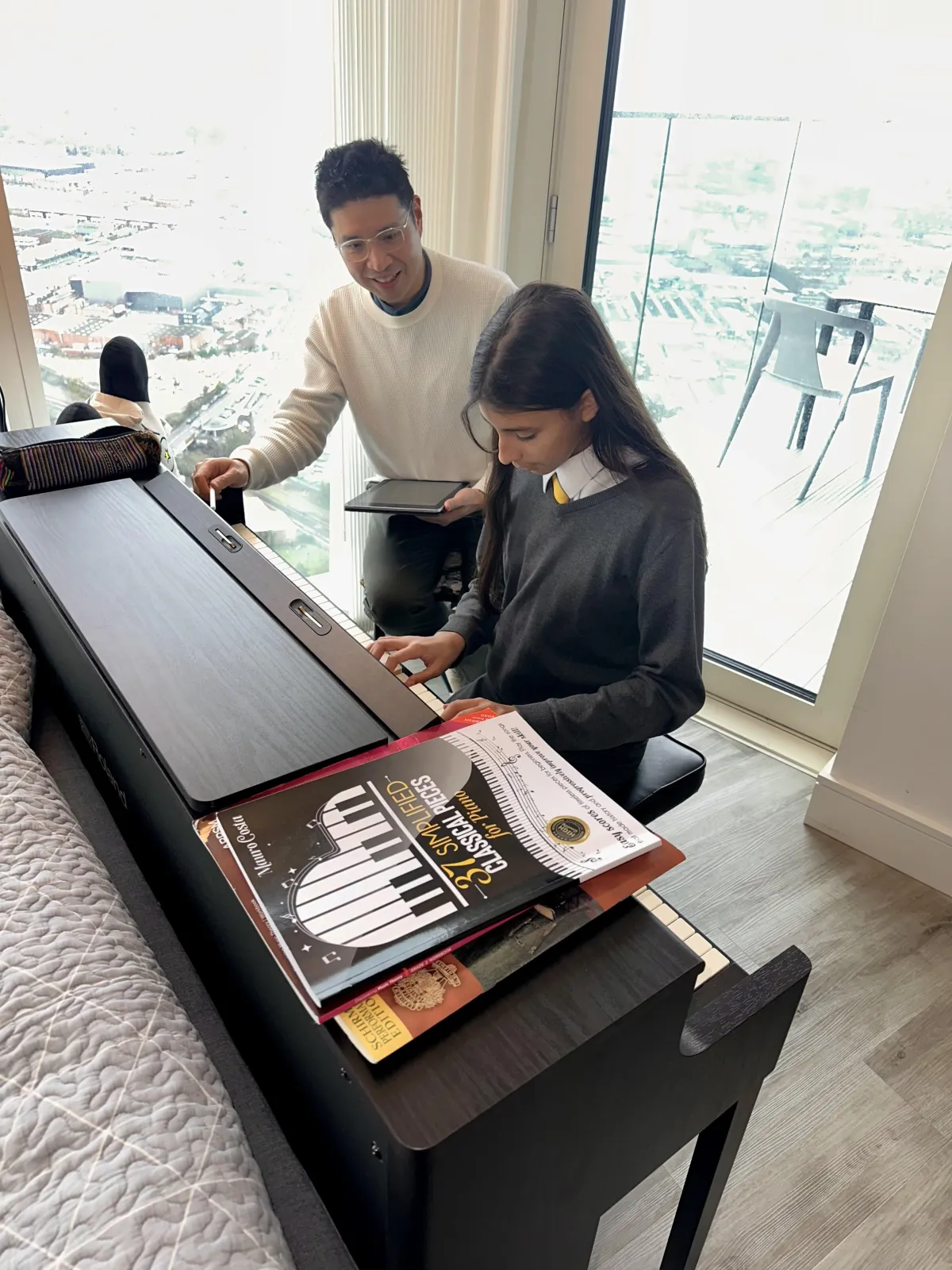
What is Classical piano lessons for teenagers for Beginners?
For teenagers, classical piano isn’t about learning “kid music” or playing background tunes—it’s about mastering a system of thought, structure, and beauty that speaks to both intellect and emotion. It invites them to hold tension and patience in the same breath, to read between the lines of a score and uncover a composer’s logic and humanity.
At this age, students are ready to engage with music more philosophically and strategically. Classical training gives them tools to interpret, refine, and express, but also to problem-solve, manage pressure, and build a personal standard of excellence. It’s not just about how well they play—it’s about who they become in the process. This is where craft and character meet.
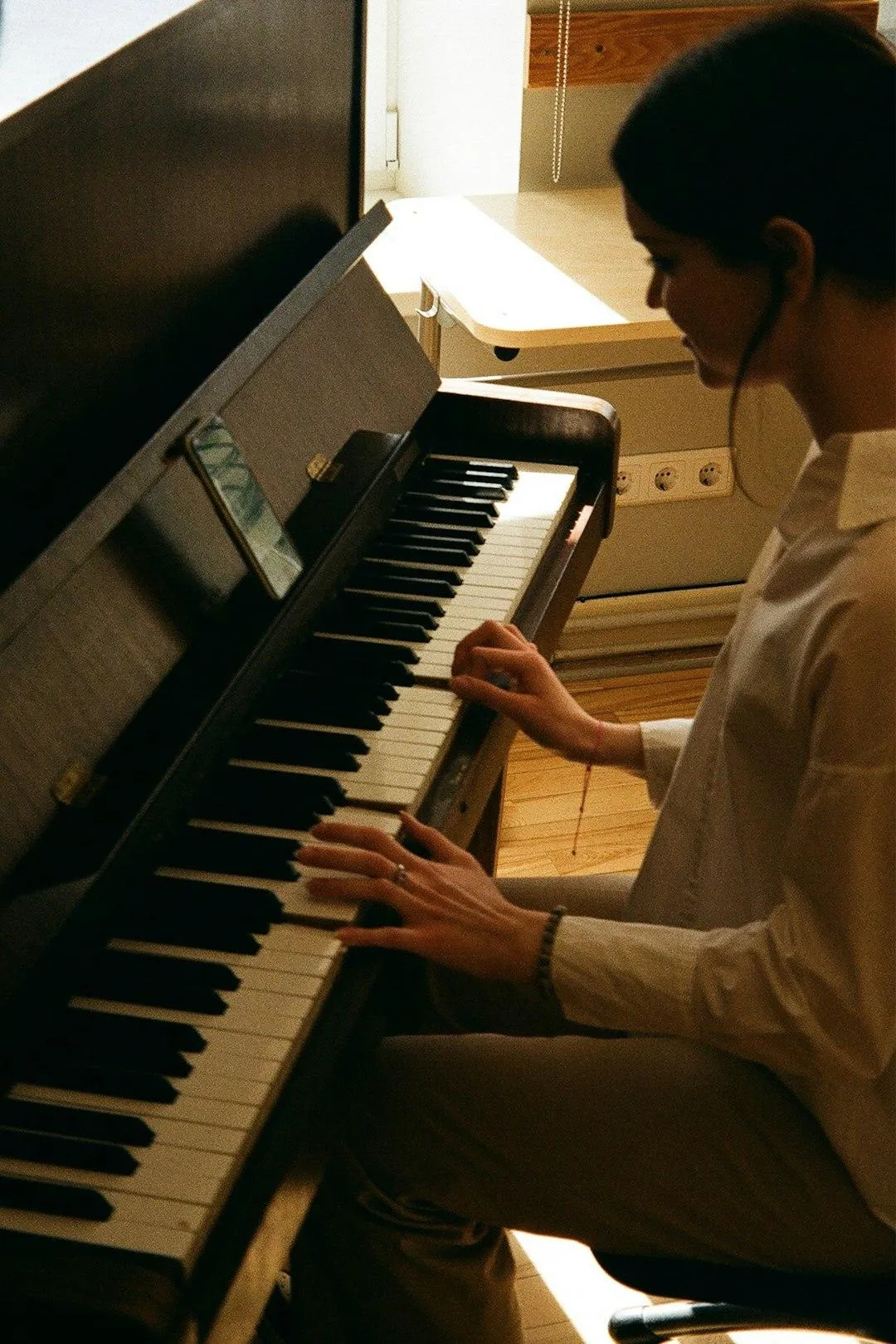
Benefits of Classical piano lessons for teenagers
Teen students need more than just a lesson plan—they need a mentor who respects their independence while holding them accountable to real progress. I bring decades of experience as a classically trained pianist, mathematician, and former diplomat—meaning I can speak their language, challenge their logic, and still make room for silence, artistry, and nuance.
Many of my teenage students are high achievers juggling exams, extracurriculars, and stress. Piano becomes their anchor—a place to build mental resilience, creative confidence, and a healthy relationship with self-discipline. Lessons are structured, but never mechanical. Transparent progress tracking, recordings of demos, and focused daily routines mean they always know where they stand—and how to grow from there.

Services > Classical piano lessons for teenagers

Classical piano lessons for teenagers in Acton
The teenage years are a unique window—where self-awareness grows, time becomes scarce, and identity starts to crystallise. At Wong Cool Piano Lessons, piano becomes more than a skill—it becomes a framework for thinking clearly, expressing deeply, and taking ownership of one’s growth. Whether the goal is to pursue graded exams, audition for a programme, or simply reconnect with creativity, lessons are tailored to fit the individual—not the other way around.
I work closely with teens to help them find rhythm and discipline amid their busy academic and social lives. My teaching balances high expectations with calm structure. We move beyond “playing notes” to develop interpretation, focus, and autonomy—giving teens a rare space to challenge themselves without judgment and to discover the power of sustained effort and subtle artistry.
What is Classical piano lessons for teenagers for Beginners?
For teenagers, classical piano isn’t about learning “kid music” or playing background tunes—it’s about mastering a system of thought, structure, and beauty that speaks to both intellect and emotion. It invites them to hold tension and patience in the same breath, to read between the lines of a score and uncover a composer’s logic and humanity.
At this age, students are ready to engage with music more philosophically and strategically. Classical training gives them tools to interpret, refine, and express, but also to problem-solve, manage pressure, and build a personal standard of excellence. It’s not just about how well they play—it’s about who they become in the process. This is where craft and character meet.
Benefits of Classical piano lessons for teenagers
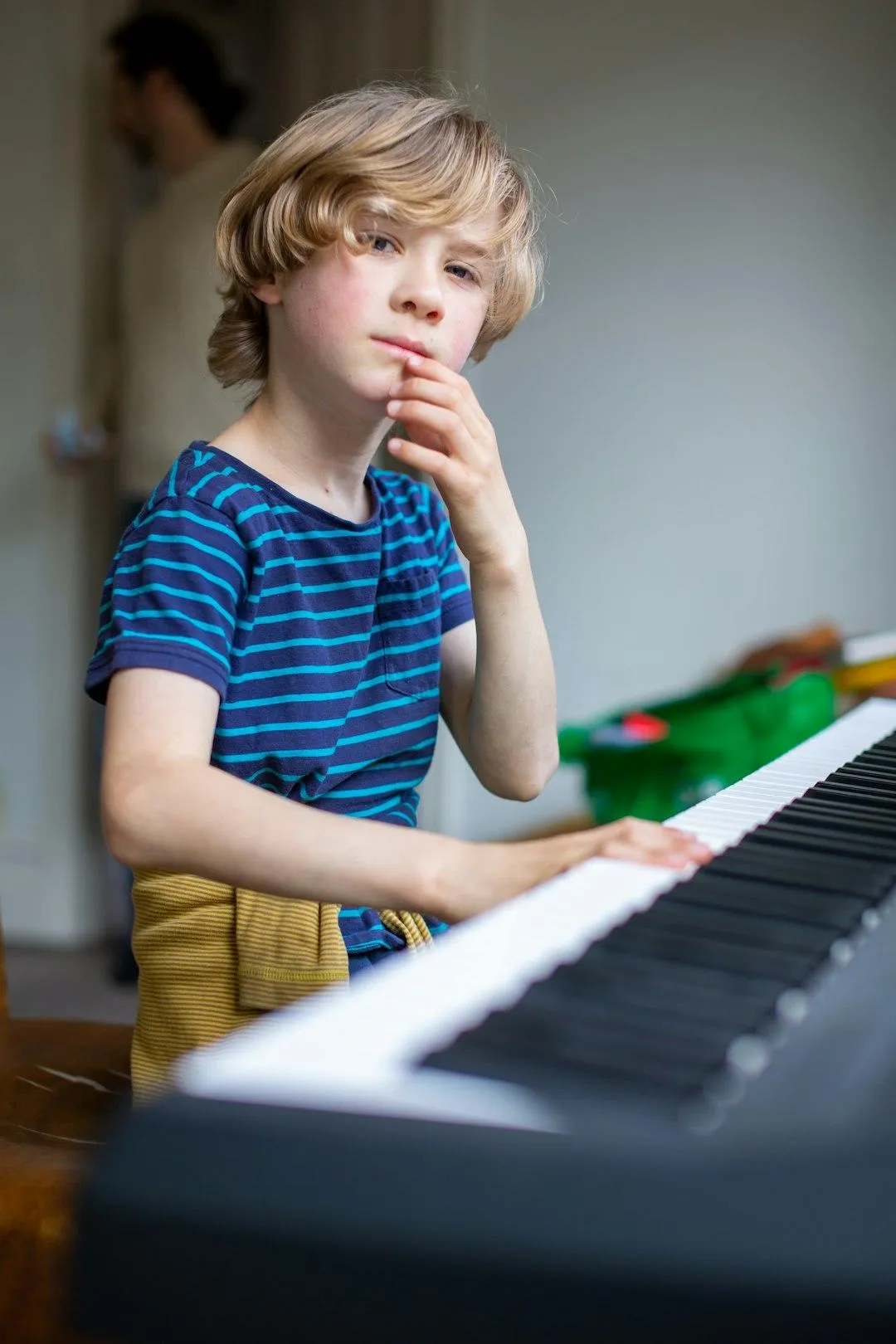
Teen students need more than just a lesson plan—they need a mentor who respects their independence while holding them accountable to real progress. I bring decades of experience as a classically trained pianist, mathematician, and former diplomat—meaning I can speak their language, challenge their logic, and still make room for silence, artistry, and nuance.
Many of my teenage students are high achievers juggling exams, extracurriculars, and stress. Piano becomes their anchor—a place to build mental resilience, creative confidence, and a healthy relationship with self-discipline. Lessons are structured, but never mechanical. Transparent progress tracking, recordings of demos, and focused daily routines mean they always know where they stand—and how to grow from there.
Our Students Taking Classes with Wong Cool Piano Lessons

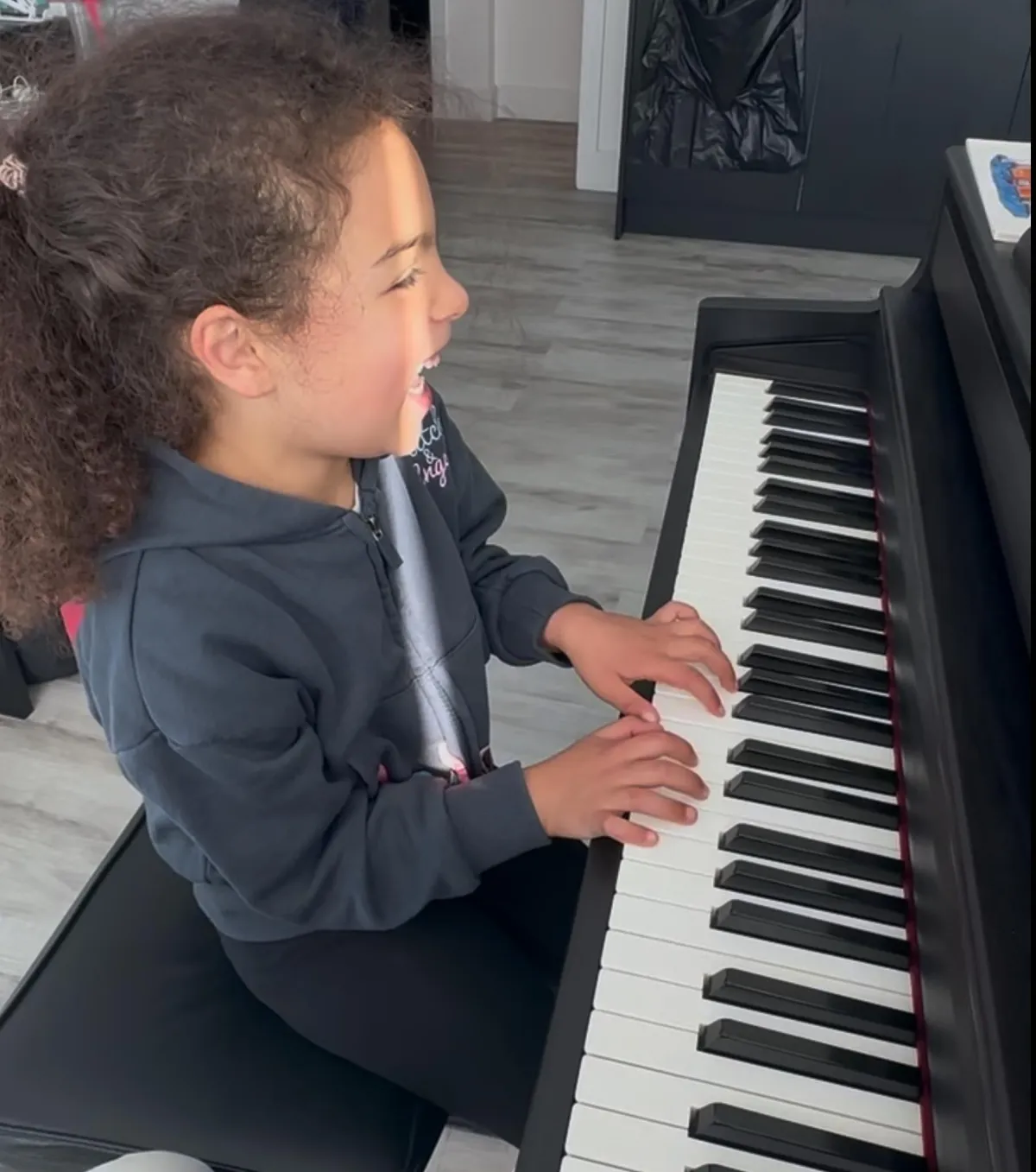
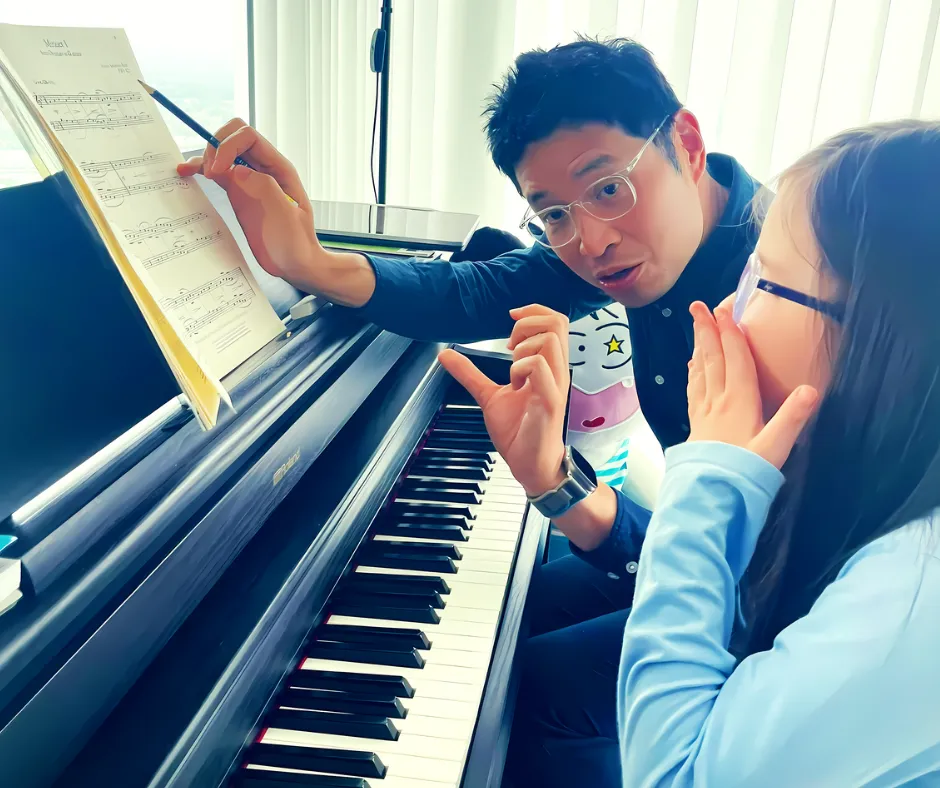
Our Students Playing On Stage After Taking Classes with Branford Music Studio



The 3-Step Process For Our
In-Person Piano Lesson
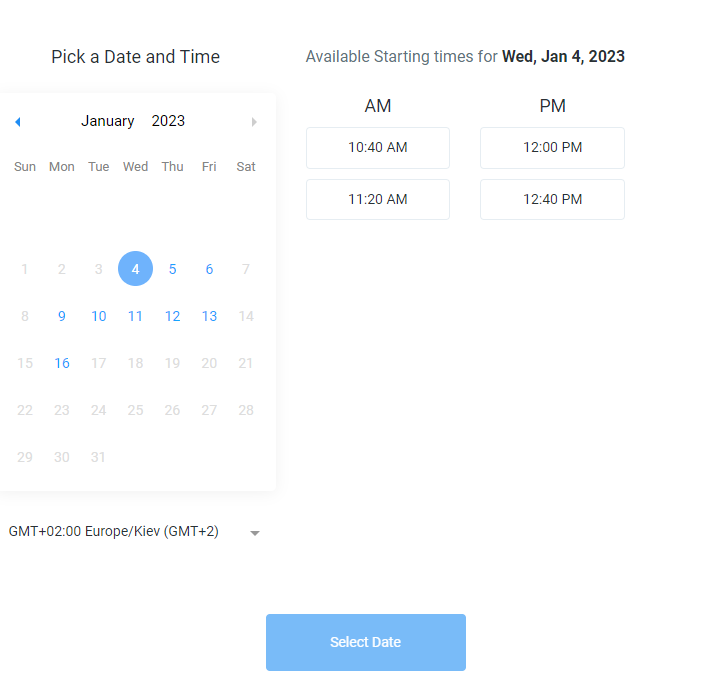
Start with Intention
Deciding to pursue classical piano at this stage of life is no small gesture—it speaks to a teen’s desire to think deeply, grow independently, and challenge themselves meaningfully. If you’re ready to take that first step, booking a complimentary trial lesson is simple. Just click below to find a time that works.
This is more than a taster—it’s a conversation. A chance to explore how structured, high-level music training might align with the student’s goals, learning style, and rhythm of life. No pressure. Just a thoughtful beginning.

Arriving Prepared
Once your trial lesson is confirmed, I’ll look forward to welcoming you to my Acton-based studio. Please arrive on time—we run a focused schedule and every minute is used purposefully. Teens often appreciate a calm, private space away from school pressures, and that’s exactly what I provide.
You’ll receive directions and parking info in your confirmation email. If a parent or guardian would like to observe or check in, you’re most welcome. Otherwise, I aim to make this a moment of focus and forward momentum for the student.
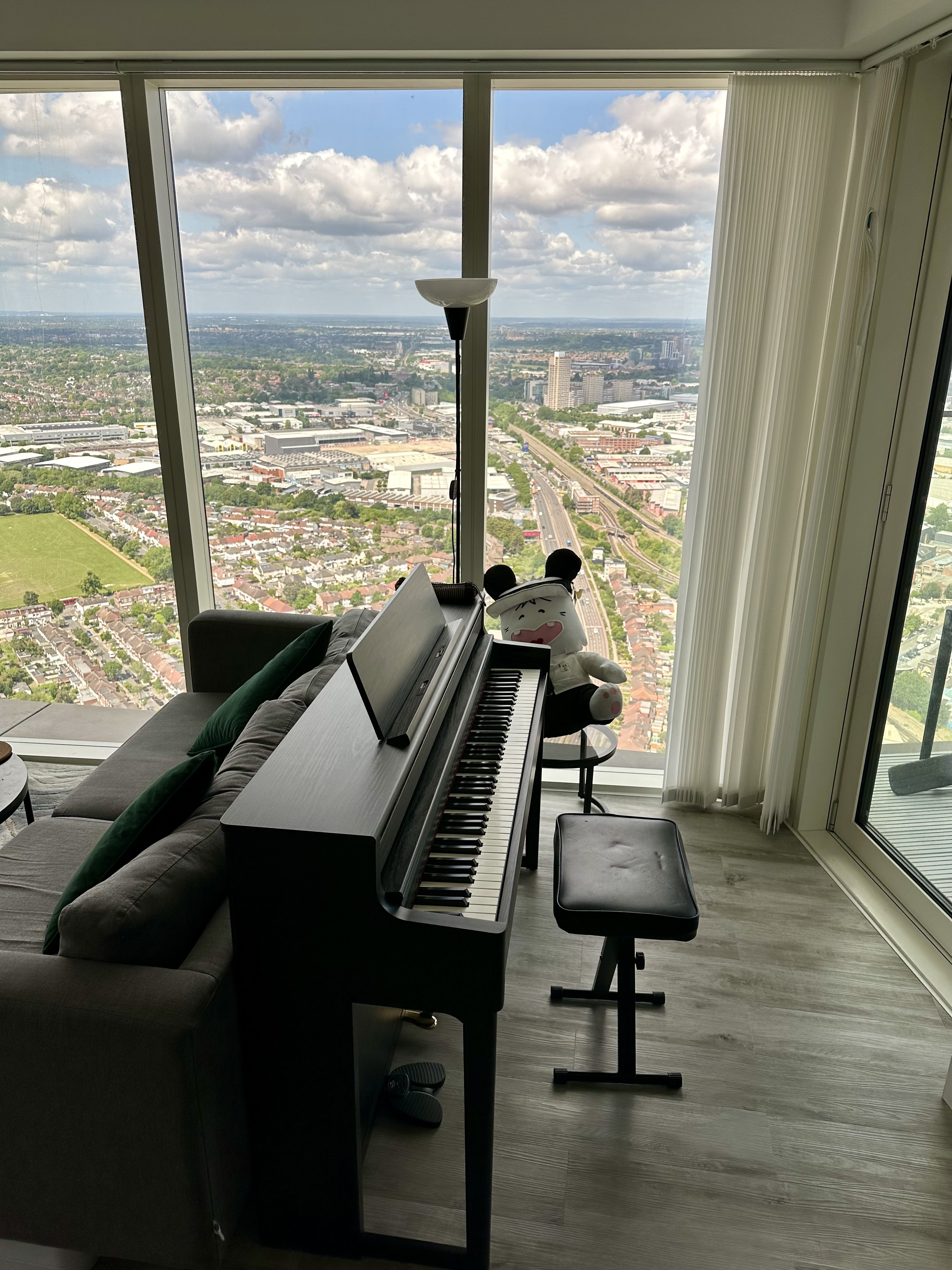

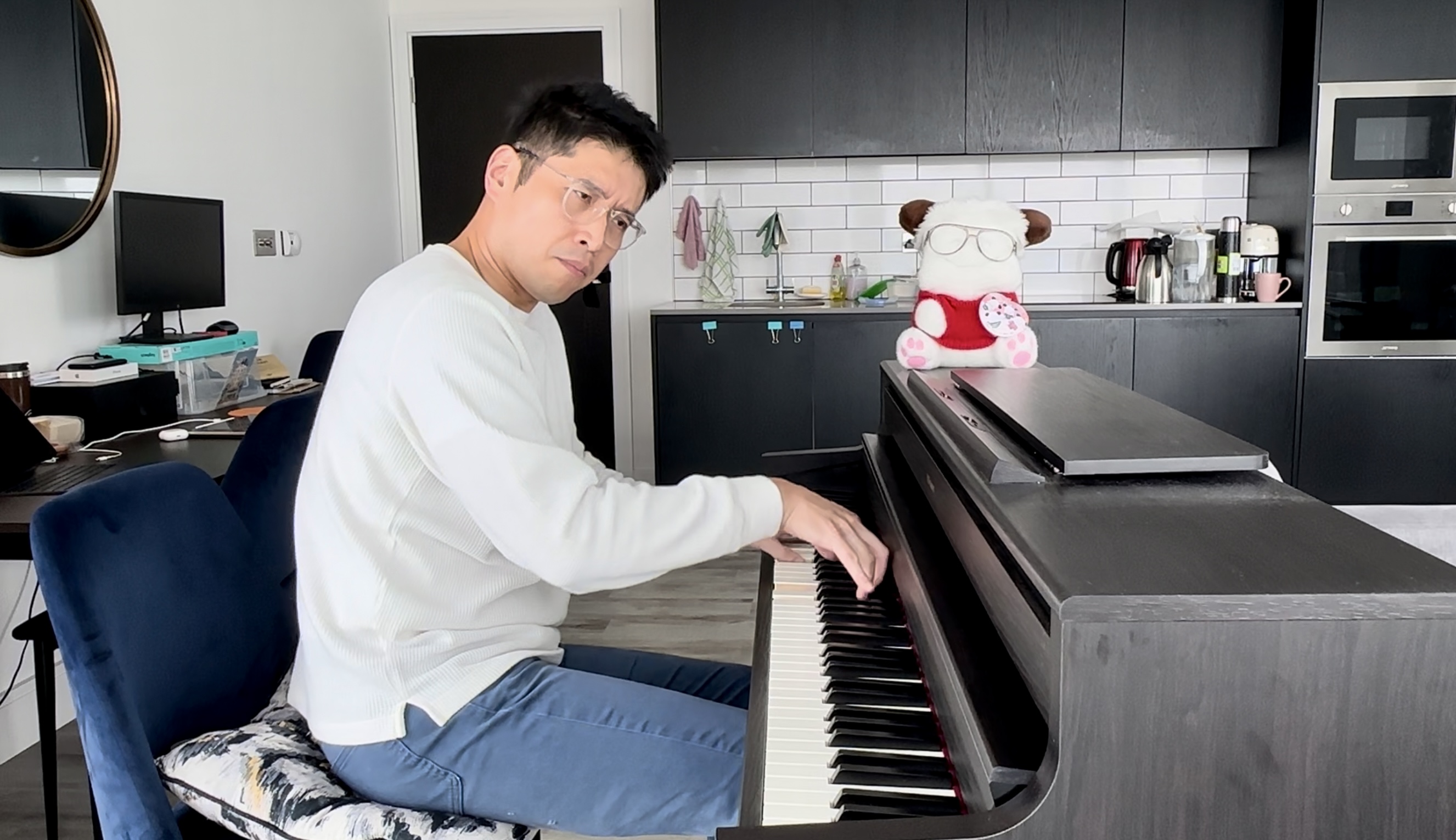
What to Expect in Your First Session
The first session isn’t about dazzling anyone—it’s about clarity. We’ll get to know how the student approaches music, where their confidence lies, and what’s holding them back (if anything). I’ll offer honest, personalised feedback and a sense of what progress could realistically look like—with the right guidance.
My teaching is structured but responsive, grounded yet ambitious. Whether this becomes a long-term partnership or just a valuable insight along the way, this first lesson will be thoughtful, calm, and full of possibility.
The 3-Step Process For
Classical piano lessons for teenagers
Start with Intention

Deciding to pursue classical piano at this stage of life is no small gesture—it speaks to a teen’s desire to think deeply, grow independently, and challenge themselves meaningfully. If you’re ready to take that first step, booking a complimentary trial lesson is simple. Just click below to find a time that works.
This is more than a taster—it’s a conversation. A chance to explore how structured, high-level music training might align with the student’s goals, learning style, and rhythm of life. No pressure. Just a thoughtful beginning.

Arrived Prepared

Once your trial lesson is confirmed, I’ll look forward to welcoming you to my Acton-based studio. Please arrive on time—we run a focused schedule and every minute is used purposefully. Teens often appreciate a calm, private space away from school pressures, and that’s exactly what I provide.
You’ll receive directions and parking info in your confirmation email. If a parent or guardian would like to observe or check in, you’re most welcome. Otherwise, I aim to make this a moment of focus and forward momentum for the student.

What to Expect in Your First Session

The first session isn’t about dazzling anyone—it’s about clarity. We’ll get to know how the student approaches music, where their confidence lies, and what’s holding them back (if anything). I’ll offer honest, personalised feedback and a sense of what progress could realistically look like—with the right guidance.
My teaching is structured but responsive, grounded yet ambitious. Whether this becomes a long-term partnership or just a valuable insight along the way, this first lesson will be thoughtful, calm, and full of possibility.
Things To Know About Classical piano lessons for teenagers
There’s no perfect age—but there’s a right mindset
Teenagers come to the piano from many directions—some as returning learners, others as curious beginners. At this age, success doesn’t depend on how early you started; it depends on how ready you are to think deeply, practise consistently, and engage with a complex art form in a focused way.
What matters most is the student’s mindset. Are they open to structured feedback? Are they willing to apply themselves regularly, even when motivation dips? If so, we can build something worthwhile—regardless of when they began.
Reading music is part of the journey—not a gatekeeper
Teens who start piano later often worry about not reading music “well enough.” But fluency in reading is built through exposure, not pressure. Whether a student is already reading or just beginning, I integrate literacy into our work without letting it overwhelm creativity or momentum.
Reading becomes a tool, not a test. I meet students where they are, and over time, they learn to navigate scores with clarity and confidence—because it’s useful, not because it’s required on day one.
Your best practice routine won’t look like anyone else’s
Teenagers are busy. That’s a fact. My job is not to demand impossible time commitments, but to help students find sustainable discipline—even in a crowded schedule. A well-structured 15–20 minutes a day can be far more effective than a half-hearted hour once a week.
I tailor micro-routines that match each student’s goals and reality—whether they’re preparing for an exam, building a portfolio, or reclaiming music as a creative outlet. What matters is consistency, not perfection.
What you’ll actually learn as a teen pianist
This is where music becomes a mirror for thinking. We work on technique, of course—scales, tone control, repertoire-building—but we also develop interpretative insight, stage readiness, emotional communication, and long-form concentration. These are skills that spill naturally into academic performance and self-leadership.
Teen pianists are ready for nuance, and I treat them as thinking musicians from day one. Whether you want to pursue diploma-level study or simply become fluent in classical repertoire, we’ll craft a progression that challenges and satisfies.
You don’t need to be “gifted”—but you do need to care
By the time they reach adolescence, students have heard too many myths about talent. Here’s my view: natural ability may open the door, but character, interest, and consistency walk you through it. I’ve taught teens with zero prior experience who learned faster than those who began early—because they were ready to invest.
There’s no special badge needed to start. If you care about music, and you’re willing to put in focused time—even in small doses—you’ll go further than you expect. I’m here to guide that process with clarity, experience, and mutual respect.
Having natural musical ability is not necessary to play the piano.
Being naturally gifted is not a pre-requisite to learn piano. Some may find it easier to learn, others may have to put in more effort to improve. However, with persistence and dedication, anyone can attain proficiency in playing the piano. A skilled piano instructor can guide and assist you in honing your skills, regardless of your initial level.
Contact Us
Open Hours
Social Media
Monday - Friday: 9:00 AM - 7:00 PM
Saturday: 9:00 AM - 5:00 PM
Sunday: Closed
Things To Know About Classical piano lessons for teenagers
There’s no perfect age—but there’s a right mindset
Teenagers come to the piano from many directions—some as returning learners, others as curious beginners. At this age, success doesn’t depend on how early you started; it depends on how ready you are to think deeply, practise consistently, and engage with a complex art form in a focused way.
What matters most is the student’s mindset. Are they open to structured feedback? Are they willing to apply themselves regularly, even when motivation dips? If so, we can build something worthwhile—regardless of when they began.
Reading music is part of the journey—not a gatekeeper
Teens who start piano later often worry about not reading music “well enough.” But fluency in reading is built through exposure, not pressure. Whether a student is already reading or just beginning, I integrate literacy into our work without letting it overwhelm creativity or momentum.
Reading becomes a tool, not a test. I meet students where they are, and over time, they learn to navigate scores with clarity and confidence—because it’s useful, not because it’s required on day one.
Your best practice routine won’t look like anyone else’s
Teenagers are busy. That’s a fact. My job is not to demand impossible time commitments, but to help students find sustainable discipline—even in a crowded schedule. A well-structured 15–20 minutes a day can be far more effective than a half-hearted hour once a week.
I tailor micro-routines that match each student’s goals and reality—whether they’re preparing for an exam, building a portfolio, or reclaiming music as a creative outlet. What matters is consistency, not perfection.
What you’ll actually learn as a teen pianist
This is where music becomes a mirror for thinking. We work on technique, of course—scales, tone control, repertoire-building—but we also develop interpretative insight, stage readiness, emotional communication, and long-form concentration. These are skills that spill naturally into academic performance and self-leadership.
Teen pianists are ready for nuance, and I treat them as thinking musicians from day one. Whether you want to pursue diploma-level study or simply become fluent in classical repertoire, we’ll craft a progression that challenges and satisfies.
You don’t need to be “gifted”—but you do need to care
By the time they reach adolescence, students have heard too many myths about talent. Here’s my view: natural ability may open the door, but character, interest, and consistency walk you through it. I’ve taught teens with zero prior experience who learned faster than those who began early—because they were ready to invest.
There’s no special badge needed to start. If you care about music, and you’re willing to put in focused time—even in small doses—you’ll go further than you expect. I’m here to guide that process with clarity, experience, and mutual respect.
Having natural musical ability is not necessary to play the piano.
Being naturally gifted is not a pre-requisite to learn piano. Some may find it easier to learn, others may have to put in more effort to improve. However, with persistence and dedication, anyone can attain proficiency in playing the piano. A skilled piano instructor can guide and assist you in honing your skills, regardless of your initial level.
Contact Us
07700 167674
4806 Icon Tower, 8 Portal Way, Ealing London W3 6EH
Service Hours
Monday - Friday: 9:00 AM - 7:00 PM
Saturday: 9:00 AM - 5:00 PM
Sunday: Closed
Social Media

2026 |
Wong Cool Piano Lessons | Rights Reserved


